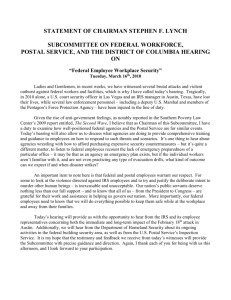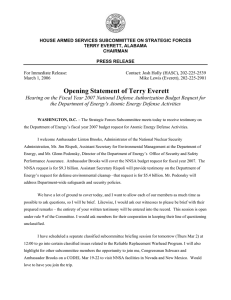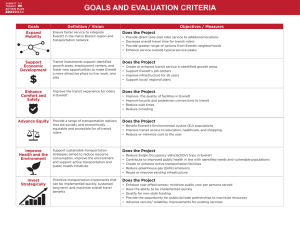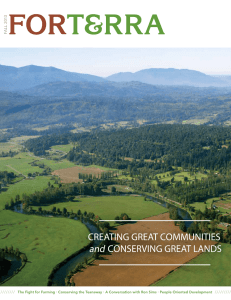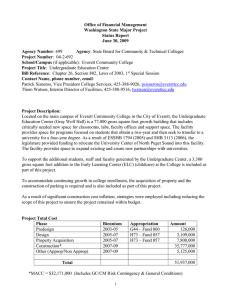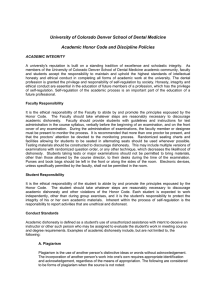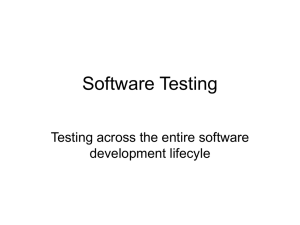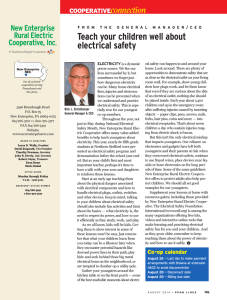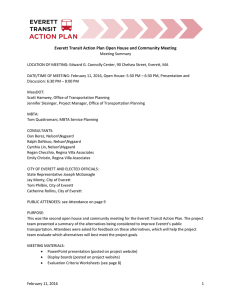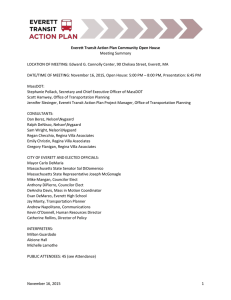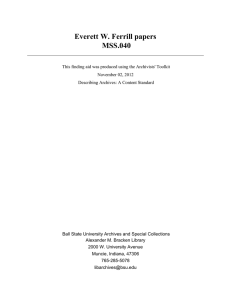For Immediate Release: Contact: Josh Holly (HASC), 202-225-2539 June 21, 2006
advertisement
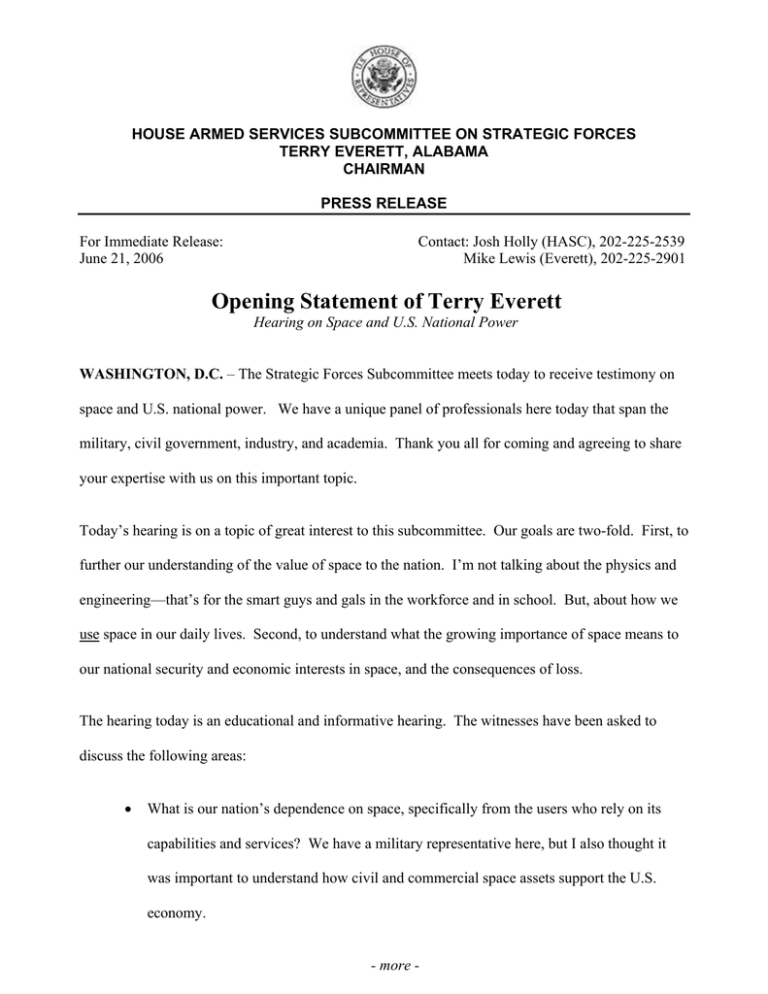
HOUSE ARMED SERVICES SUBCOMMITTEE ON STRATEGIC FORCES TERRY EVERETT, ALABAMA CHAIRMAN PRESS RELEASE For Immediate Release: June 21, 2006 Contact: Josh Holly (HASC), 202-225-2539 Mike Lewis (Everett), 202-225-2901 Opening Statement of Terry Everett Hearing on Space and U.S. National Power WASHINGTON, D.C. – The Strategic Forces Subcommittee meets today to receive testimony on space and U.S. national power. We have a unique panel of professionals here today that span the military, civil government, industry, and academia. Thank you all for coming and agreeing to share your expertise with us on this important topic. Today’s hearing is on a topic of great interest to this subcommittee. Our goals are two-fold. First, to further our understanding of the value of space to the nation. I’m not talking about the physics and engineering—that’s for the smart guys and gals in the workforce and in school. But, about how we use space in our daily lives. Second, to understand what the growing importance of space means to U U our national security and economic interests in space, and the consequences of loss. The hearing today is an educational and informative hearing. The witnesses have been asked to discuss the following areas: • What is our nation’s dependence on space, specifically from the users who rely on its capabilities and services? We have a military representative here, but I also thought it was important to understand how civil and commercial space assets support the U.S. economy. - more - • What are the impacts of the loss or degradation of space? For example, GPS and SATCOM are important, but what happens if these systems are degraded? Are there warfighter missions that cannot function? Do we lose our ability to use credit cards at gas stations? • What are the emerging threats to space and their effect on space systems? • What are government and industry doing to address vulnerabilities of space systems and mitigate their risk of loss or degradation? This foundation of knowledge is important to start a long-term dialogue on how we protect our interests in space, and continue discussions on our space investment strategy and how we sustain U.S. leadership in space. ### http://armedservices.house.gov/ U U
